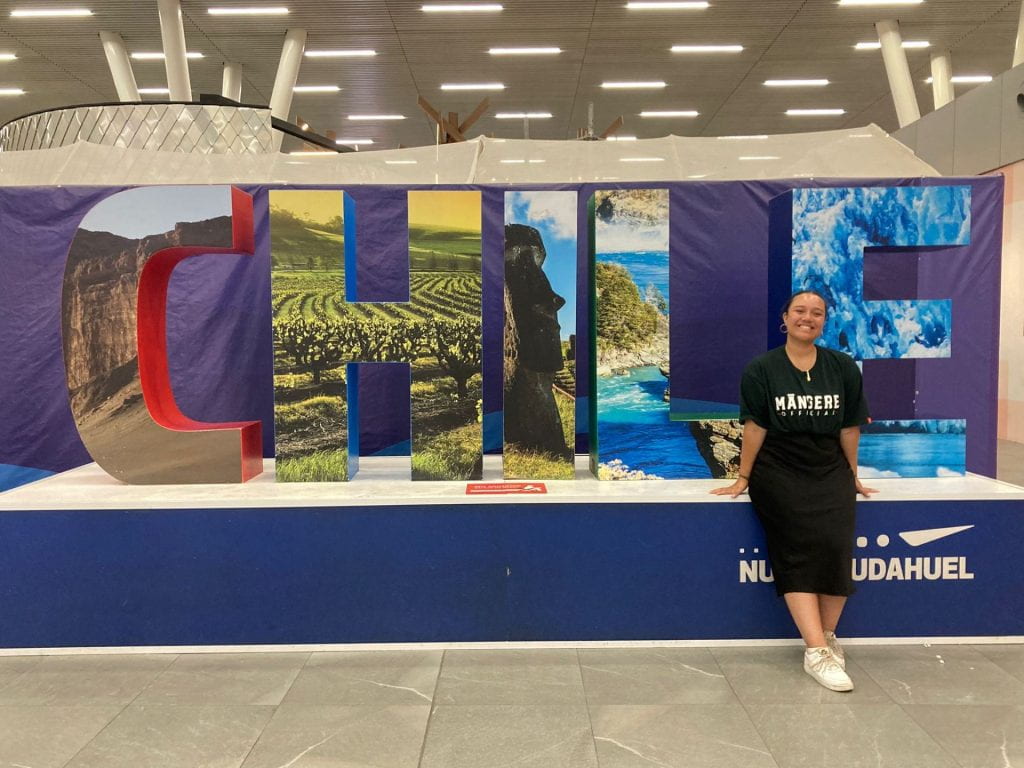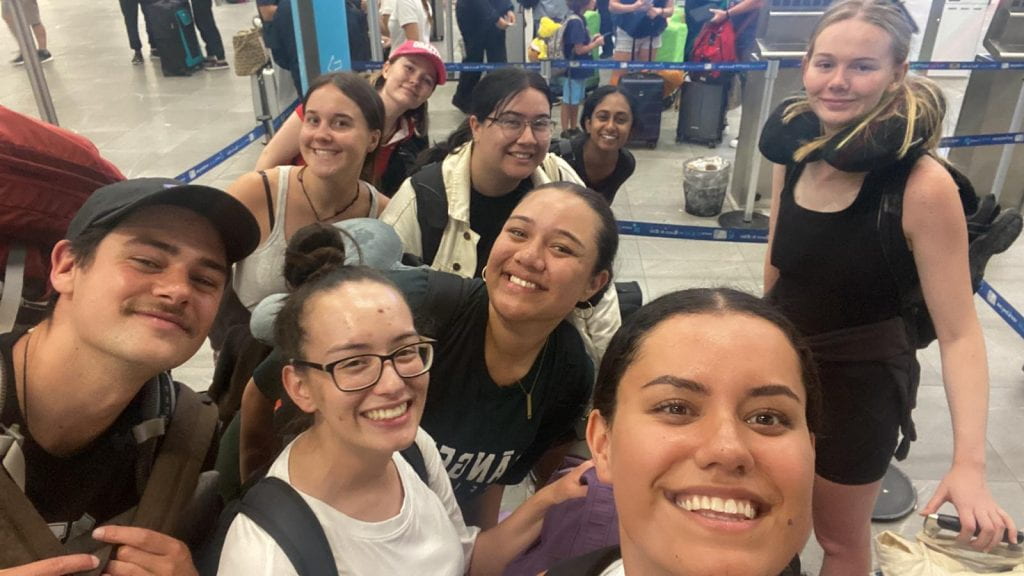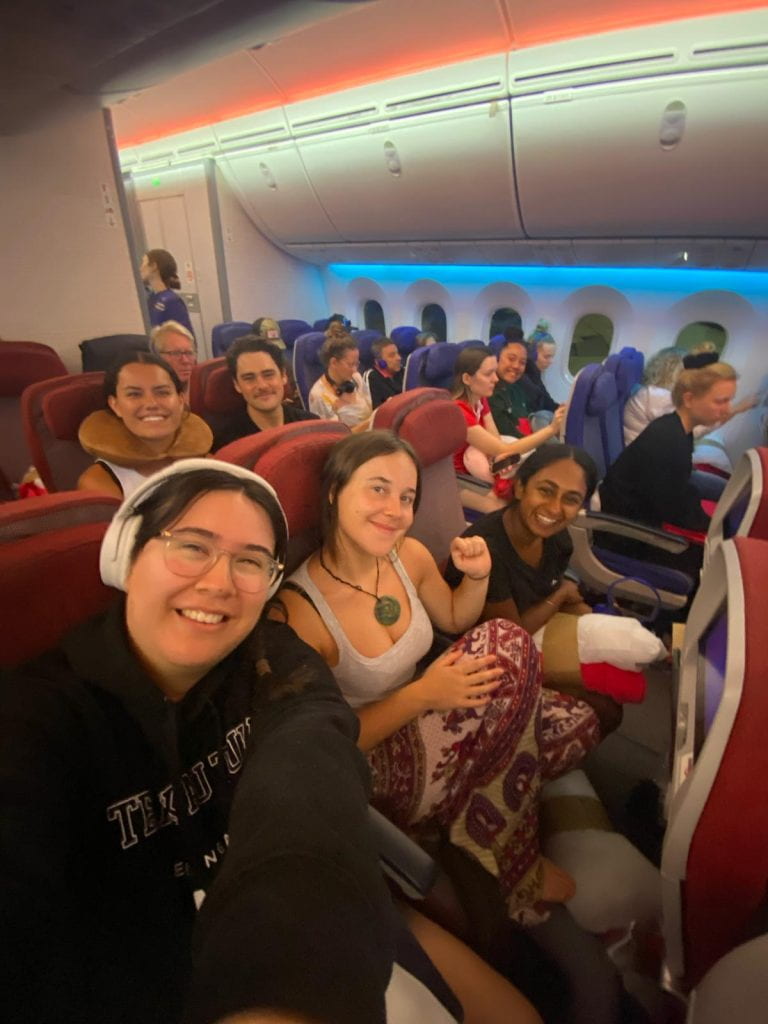Our final week in Chile came around too fast! As we prepared for farewells and did the last few things on our Chilean bucket lists, our group also prepared our final presentations. Wednesday was our final day of the Intercultural Approaches to Public Health programme at UC Chile, and we had the opportunity to share what we have learned with our classmates, lecturers, and programme coordinators. The presentations were a highlight for me. Each of us prepared slideshows applying the content of the course to our own unique contexts. From looking at economics to migrant realities to mana motuhake, we delved deeper into how we saw interculturality in our lives. For my presentation titled ‘A Talanoa on Interculturality,’ I shared how we can use the pan-Pacific ancestral practices of talanoa (reciprocal dialogue) to implement interculturality as individuals and communities. I discussed talanoa using Mckenzie and Albon’s four aspects of talanoa ifo, talanoa mai, talanoa atu, and talanoa ane.
Talanoa ifo refers to the talanoa of reflexivity, looking at ourselves and understanding what we have to share and what we can grow to be.
I am sure that in our final week, there was plenty of opportunity to talanoa ifo as we reflected on the exponential personal growth we experienced over the last month. I was thrown into having talanoa ifo when I had what I called ‘snapshots of gratitude.’ Moments of mental snapshots from sights I knew I was blessed to witness. Upside-down views of the Andes from the top of the Fantasilandia rides and images of San Clemente sunsets fill this mental album. All these images and experiences allowed me to center my talanoa ifo on gratitude for the experience to share about my village in Chile, and now share about my new village in Chile to those at home.
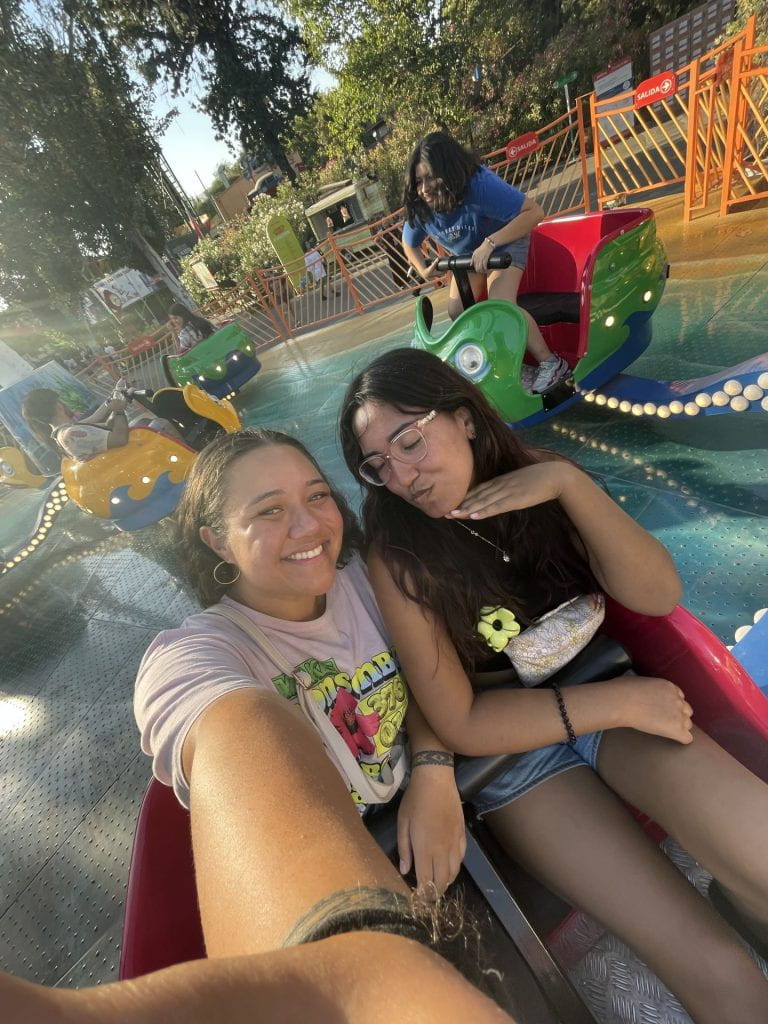
Talanoa mai refers to the open space we create to allow others to share their thoughts and views, welcoming with respect the opportunity to learn and grow. Talanoa atu reciprocates the talanoa mai as we respond to the knowledge we receive.
During this final week, I reflected on all the talanoa mai and talanoa atu I experienced, shared, and received during my month in Chile. The cultural exchanges in and outside of class expanded my understanding of what informs the worldviews of others. Each talanoa allowed me to experience Chile through the hearts and minds of those living there. On our final day of the course, the classroom was filled with familiar faces: lecturers who became mentors, mentors who became friends, and friends who became family. As students, we practised talanoa mai, taking in all we could learn from the Chilean health system. Our talanoa atu were our final presentations, and I was grateful to be able to apply my own ancestral practices to interculturality.
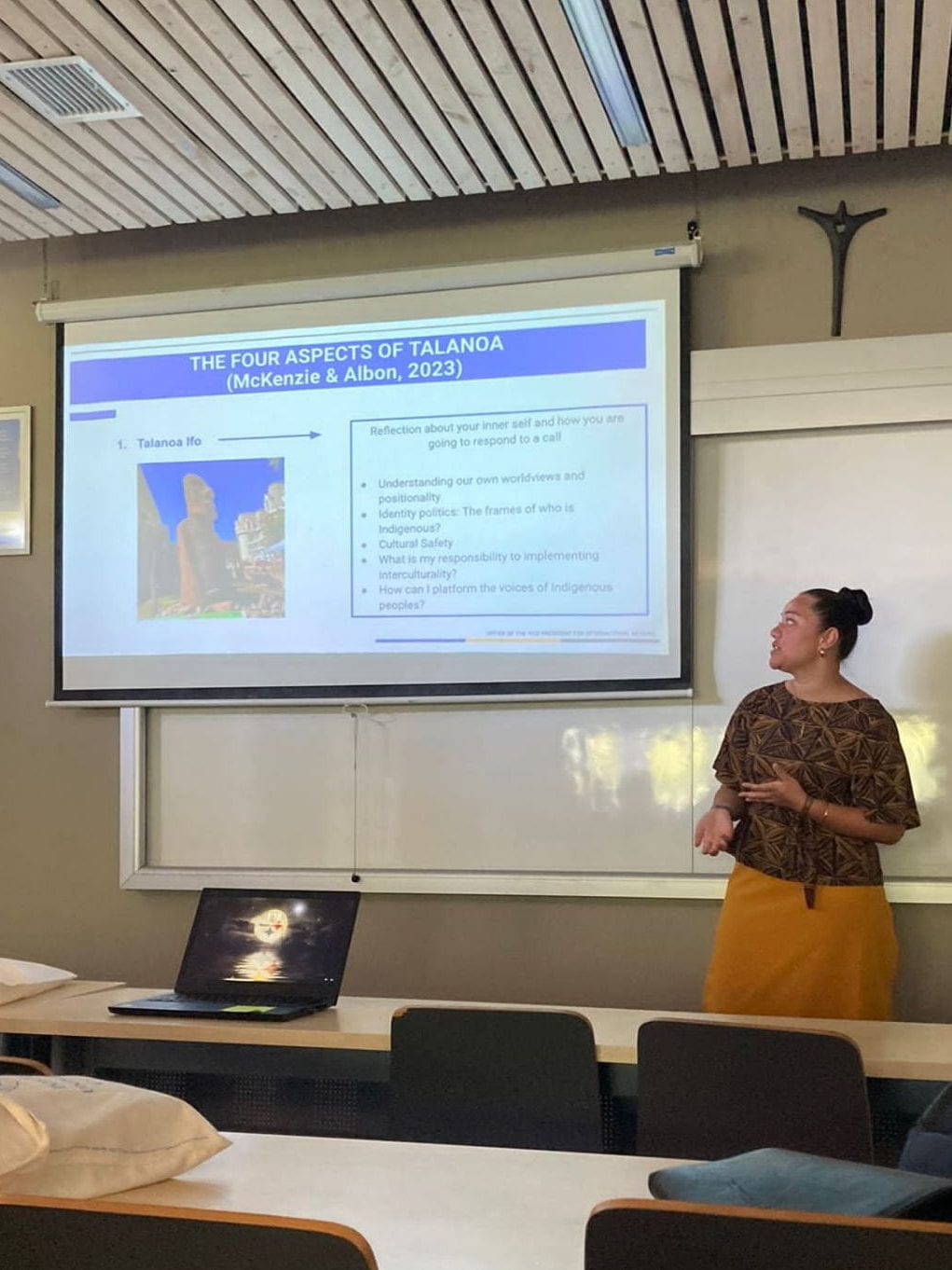
Talanoa ane refers to ensuring we talanoa with those of close and distant proximity.
My final week in Chile was a week of farewells as I visited those who impacted my life through our talanoa. Returning to Santa Lucia, I visited Sebastian Silva, a Mapuche protest photographer who taught me about wallmapu (the land you hail from) and the longing to return. At the end of the week, Tai, Charlotte, Saffron, and I went south to San Clemente. We stayed with our beautiful friend Omara, who shared her home and life. We swam in rivers and walked up a maunga, having talanoa with each other and the mother earth of Chile. On our final day in Santiago, I visited a few of our friends from UC Chile and the Santiago Exchange. We laughed and joked about all the talanoa we shared and reminded each other that our farewells were only temporary. My final week allowed me to reflect on how far my talanoa reached. Some talanoa felt like home, and some confronting, but all the talanoa expanded my aspirations for what we can do to uplift indigenous health.
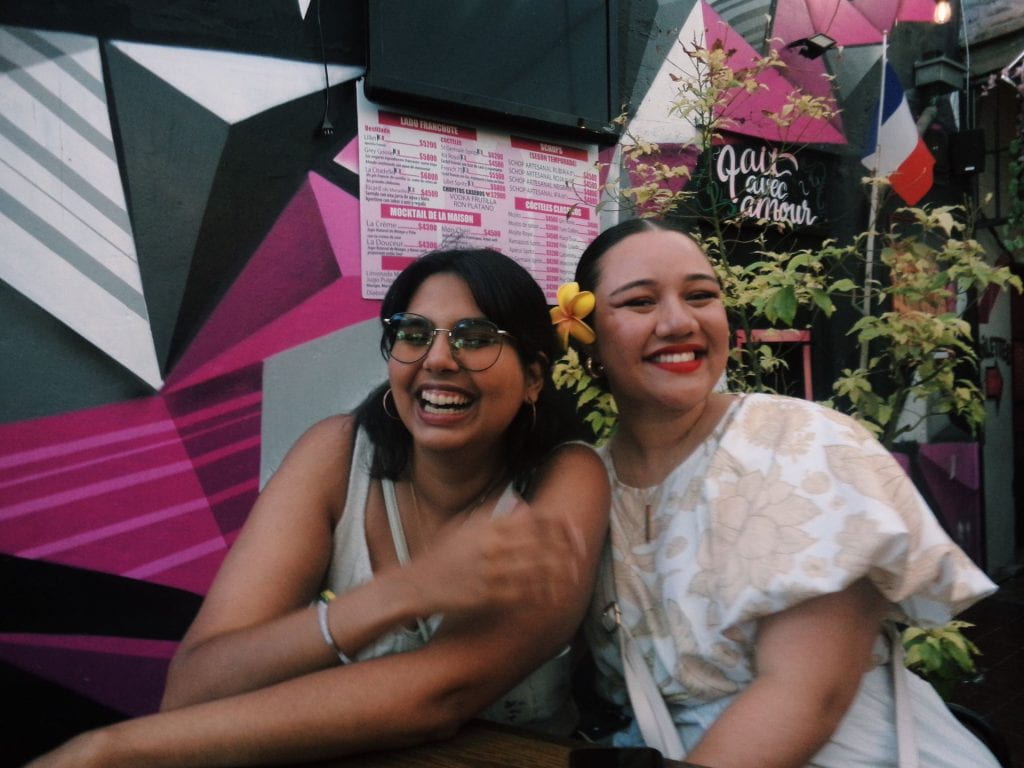
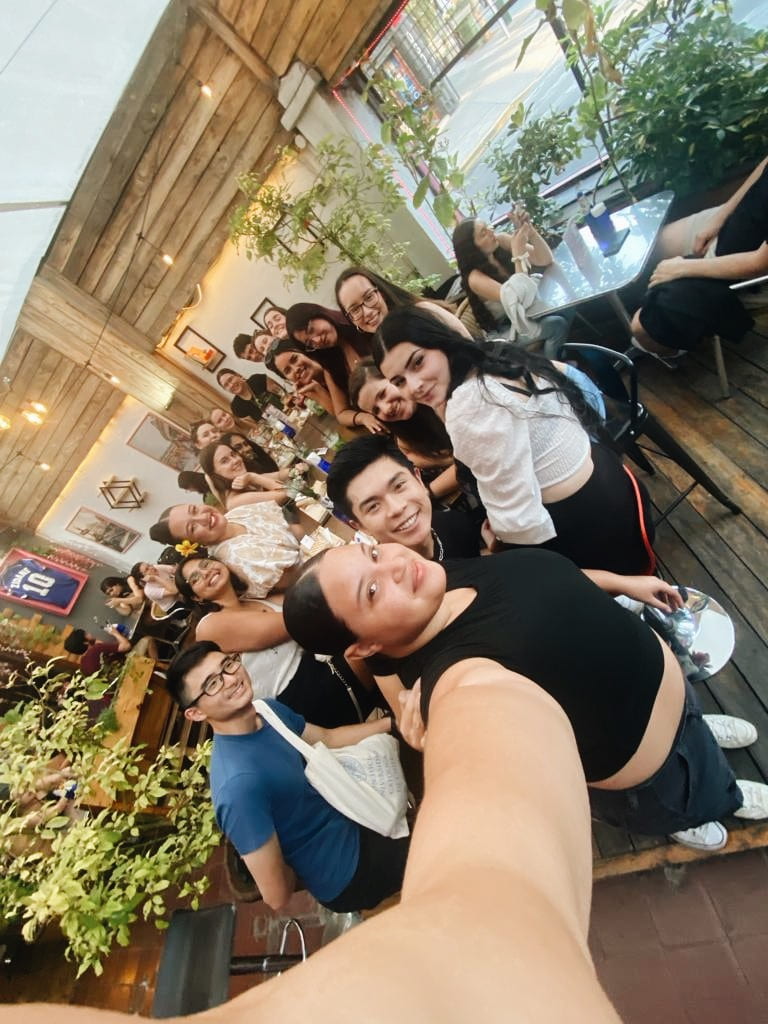
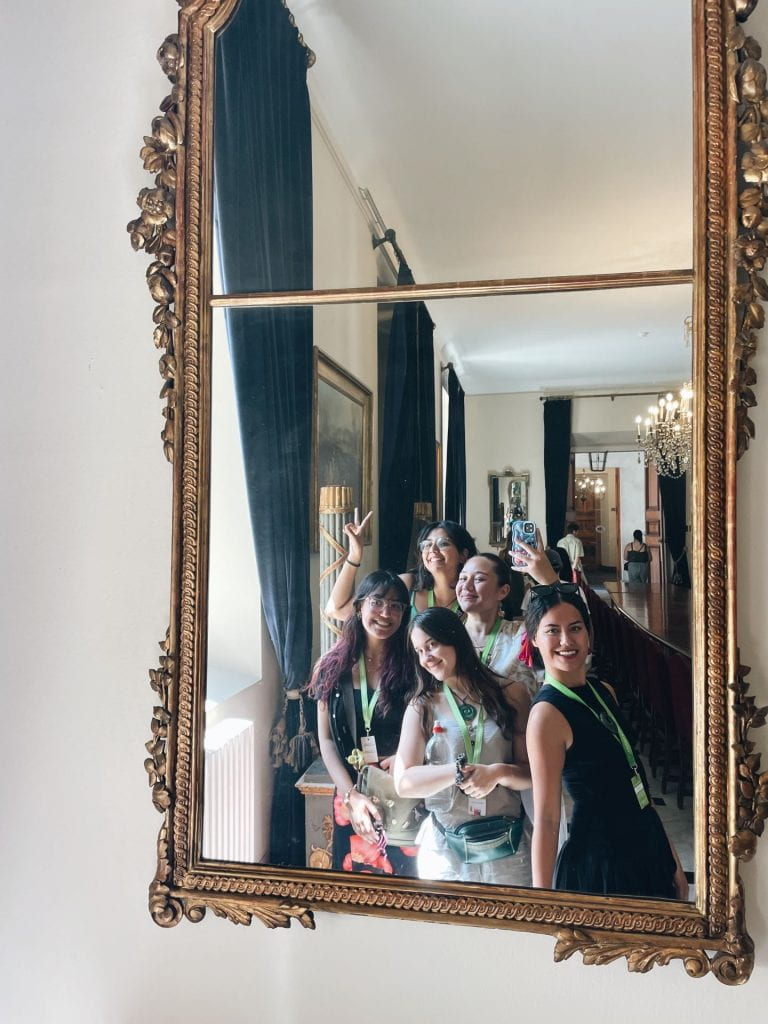
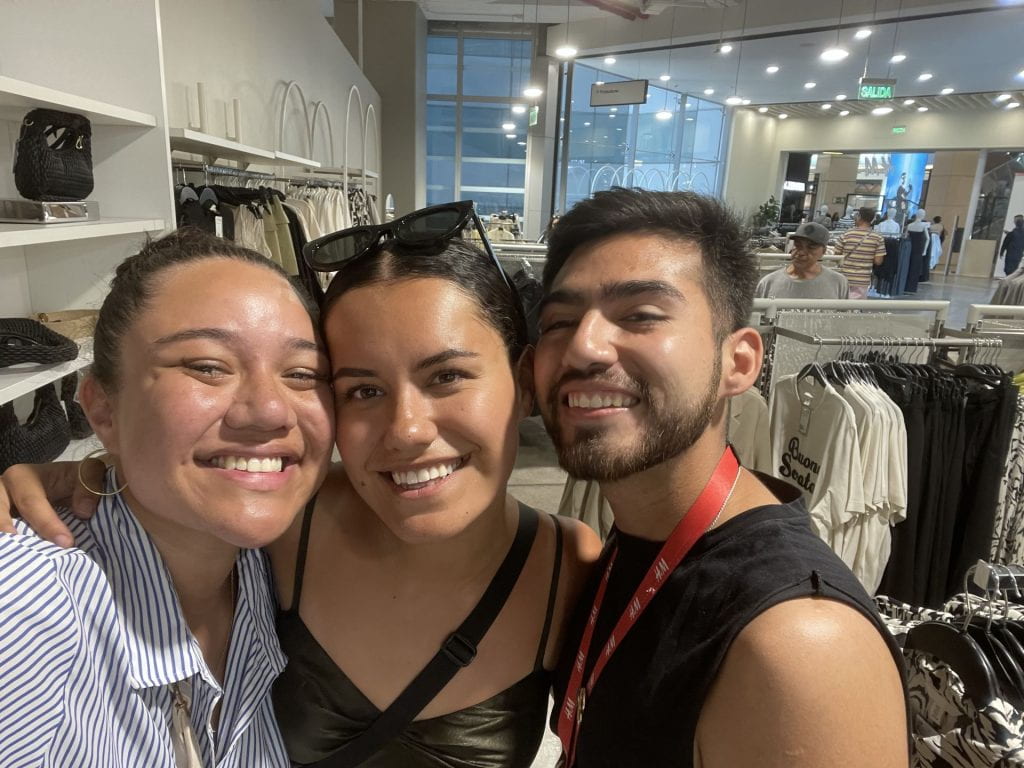
It has been over a week since returning home to the ‘275’, and the same way I saw a lot of home in Chile, I see a lot of Chile in home. As I return to teine Samoa duties, serving ipu tī to my elders, I remember the tias who served me yerba mate. The sky reminds me of my initial mistaking of Chilean snow-topped mountains for simply far-away clouds, and I am still working on responding with ‘yes’ instead of ‘Sí po!’ I sit at home endlessly grateful for my time in Chile but also feel like I never left. The blessing of experiencing the world through talanoa is that even when you physically leave the place, your vā (relational space) remains connected. I carry the talanoa I learnt in Chile with me in all I that I do in Aotearoa, strengthening my ties to one day hopefully return and work further with the communities I have grown to love.
